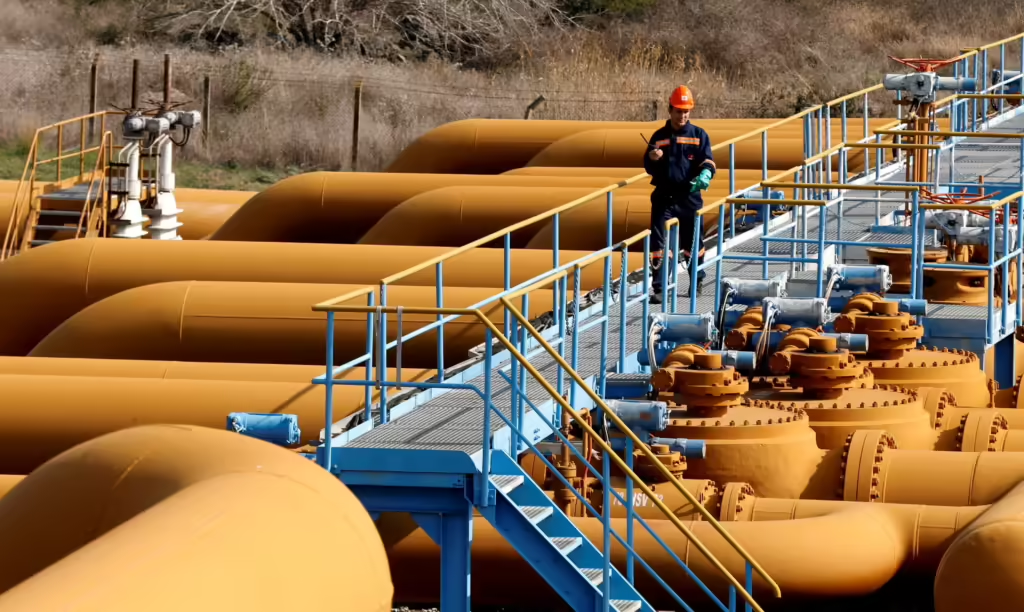Iraqi elections play out amid boycott

BAGHDAD -- Iraqis voted Sunday in parliamentary elections held months ahead of schedule as a concession to a youth-led popular uprising against corruption and mismanagement.
But the voting was marked by widespread apathy and a boycott by many of the young activists who thronged the streets of Baghdad and Iraq's southern provinces in late 2019.
Tens of thousands of people took part in the mass protests and were met by security forces firing live ammunition and tear gas. More than 600 people were killed and thousands injured within just a few months.
Gallery: Parliamentary elections in Iraq[Gallery not loading above? Click here for more photos » arkansasonline.com/1011iraqvote/]
Although authorities gave in and called the early elections, the death toll and the heavy-handed crackdown -- as well as a string of targeted assassinations -- prompted many who took part in the protests to later call for a boycott of the vote.
Polls closed at 10 a.m. Sunday after 11 hours of voting. Results are expected within the next 24 hours, according to the independent body that oversees Iraq's election. But negotiations to choose a prime minister tasked with forming a government are expected to drag on for weeks or even months.
The election was the sixth held since the fall of Saddam Hussein after the U.S.-led invasion of Iraq in 2003. Many were skeptical that independent candidates from the protest movement stood a chance against well-entrenched parties and politicians, many of them backed by powerful armed militias.
Iraq's Prime Minister Mustafa al-Kadhimi, whose chances for a second term will be determined by the results of the election, urged Iraqis to vote in large numbers.
"Get out and vote and change your future," said al-Kadhimi, repeating the phrase, "get out" three times after casting his ballot at a school in Baghdad's heavily fortified Green Zone, home to foreign embassies and government offices.
Under Iraq's laws, the winner of Sunday's vote gets to choose the country's next prime minister, but it's unlikely any of the competing coalitions can secure a clear majority.
That will require a lengthy process involving backroom negotiations to select a consensus prime minister and agree on a new coalition government. It took eight months of political wrangling to form a government after the 2018 elections.
Groups drawn from Iraq's majority Shiite Muslims dominate the electoral landscape, with a tight race expected between Iraq's influential Shiite cleric Moqtada al-Sadr and the Fatah Alliance, led by paramilitary leader Hadi al-Ameri, which came in second in the previous election.
The Fatah Alliance is comprised of parties and affiliated with the Popular Mobilization Forces, an umbrella group of mostly pro-Iran Shiite militias that rose to prominence during the war against the Sunni extremist Islamic State group.
It includes some of the most hard-line Iran-backed factions, such as the Asaib Ahl al-Haq militia. Al-Sadr, a black-turbaned nationalist leader, is also close to Iran, but publicly rejects its political influence.
Earlier Sunday, al-Sadr cast his ballot in the Shiite holy city of Najaf, swarmed by local journalists. He then drove away in a white sedan without commenting. Al-Sadr, a populist who has an immense following among Iraq's working class Shiites, came out on top in the 2018 elections, winning a majority of seats.
The election is the first since the fall of Saddam to proceed without a curfew in place, reflecting the significantly improved security situation in the country following the defeat of IS in 2017. Previous votes were marred by fighting and deadly bomb attacks that have plagued the country for decades.
In another first, Sunday's election is taking place under a new election law that divides Iraq into smaller constituencies -- another demand of the activists who took part in the 2019 protests -- and allows for more independent candidates.
The 2018 elections saw just 44% of eligible voters cast their ballots, a record low, and the results were widely contested. There are concerns of a similar or even lower turnout this time.
Information for this article was contributed by Abdulrahman Zeyad of The Associated Press.

